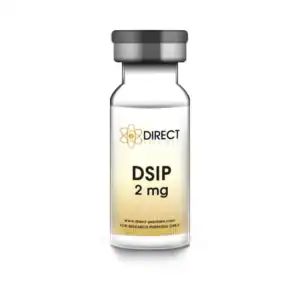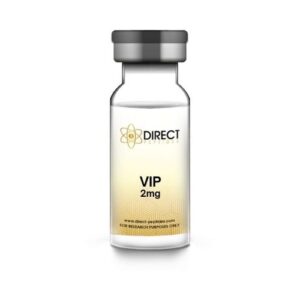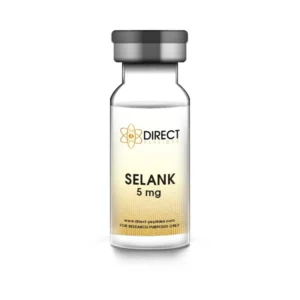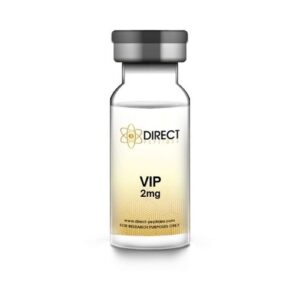Please be aware of our revised hours during the holiday season. We will operate on a half-day schedule on December 24th and 31st and will be CLOSED from December 25th to 28th, with limited customer service available. We will fully REOPEN on December 29th and again on January 2nd.
Sleep disorders, especially insomnia, are now common worldwide. Many people struggle with these issues daily. With the demand for solutions increasing, researchers are studying new methods, like sleep peptides.
These short amino acid chains show promise in improving sleep quality, reducing the time it takes to fall asleep, and supporting deep, restorative sleep. However, these peptides are for research purposes only. They remain in the experimental phase and are not approved for human use.
Sleep peptides are bioactive compounds made from amino acids. They interact with the central nervous system to help regulate sleep patterns. These peptides may affect neurotransmitters like melatonin and serotonin.
Both are key to sleep onset and circadian rhythm regulation. Studies are ongoing to understand how these peptides promote restful sleep and improve rapid eye movement (REM) sleep.
Peptide research is growing quickly. Scientists are looking at how these compounds support sleep health in new ways. Unlike traditional sleep aids, peptides target specific physiological processes. This targeted approach could provide a more natural and effective solution for sleep issues. Such precision might change how we think about sleep science.
Sleep peptides come in various forms, including vials for injection, pre-mixed pens, and nasal sprays, offering a non-invasive option for administration.
Sleep peptides can improve sleep quality by regulating the sleep-wake cycle, enhancing deep sleep stages, and reducing disturbances during the night. They aid in relaxation, stress reduction, and promoting a more restful and rejuvenating sleep experience overall.
Modern lifestyles and environmental factors play a big role in sleeplessness. Stress, caffeine, and irregular schedules often trigger insomnia. These factors disrupt circadian rhythms and lower sleep quality. Sleep disorders can also be caused by medical conditions like sleep apnea or chronic pain.
Sleep deprivation has wide-ranging effects. Studies show that it harms individual health and creates societal problems. It can lower workplace productivity and raise the risk of accidents. Growing awareness of these issues highlights the need for new solutions, such as sleep peptides.
 First identified in the 1970s, Delta Sleep Inducing Peptide DSIP shows promise in managing rest and wake cycles. Studies suggest it may affect key systems, like GABAergic and serotonergic pathways, to help with relaxation and improve rest patterns. Research also shows that DSIP can boost delta EEG activity, reduce the time to fall asleep, and enhance REM phases.
First identified in the 1970s, Delta Sleep Inducing Peptide DSIP shows promise in managing rest and wake cycles. Studies suggest it may affect key systems, like GABAergic and serotonergic pathways, to help with relaxation and improve rest patterns. Research also shows that DSIP can boost delta EEG activity, reduce the time to fall asleep, and enhance REM phases.
DSIP is being studied for benefits beyond improving rest. It may also help manage pain and stress. Originally found in rabbit blood, it is thought to influence body temperature and hormone functions. Researchers continue to explore how DSIP could provide solutions where other treatments are less effective.
Check out DSIP research peptide from Direct Peptides Indonesia.
 CJC-1295 DAC is a synthetic peptide that increases growth hormone release, which is important for repair and recovery.
CJC-1295 DAC is a synthetic peptide that increases growth hormone release, which is important for repair and recovery.
Growth hormone levels peak during sleep, making this peptide helpful for promoting restorative processes. Its long-lasting effects support tissue repair, cell regeneration, and overall recovery.
Studies show that CJC-1295 DAC may enhance recovery cycles by extending deep rest periods. This could help with muscle growth, tissue healing, and mental recovery.
It is also being studied for its role in improving metabolism by supporting energy balance and fat breakdown. More research is needed to confirm its safety and effectiveness.
Explore CJC-1295 DAC peptides from Direct Peptides Indonesia online.
Selank, a peptide derived from tuftsin, is being studied for its role in addressing anxiety and stress. These are common factors that often disturb rest. Research suggests that Selank may help balance neurotransmitters in the brain, which could promote relaxation and improve rest quality.
What makes Selank unique is its non-sedative approach. Unlike sedatives that can cause grogginess or dependency, Selank offers a potential way to manage stress while maintaining alertness. It continues to be an intriguing focus in studies on anxiety and its effects on rest.
Explore Selank peptide from Direct Peptides Indonesia.
 VIP is a peptide being studied for its role in regulating circadian rhythms. It is found naturally in the body and may influence neurotransmitters that control sleep-wake cycles.
VIP is a peptide being studied for its role in regulating circadian rhythms. It is found naturally in the body and may influence neurotransmitters that control sleep-wake cycles.
Studies suggest that VIP can improve sleep by balancing REM and non-REM phases.
Researchers are also exploring how it helps regulate body temperature, which is important for deep and restful sleep. By supporting the body’s internal clock, VIP may help correct disruptions in sleep patterns.
Check out VIP research peptide online from Direct Peptides Indonesia.
Sleep deprivation is often caused by a mix of lifestyle habits, environmental factors, and medical conditions. Common triggers include too much caffeine, stress, irregular sleep schedules, and blue light exposure. Chronic issues like sleep apnea and insomnia can make the problem worse.
These factors show how complex sleep health can be. Solving sleep deprivation requires multiple approaches. Research into sleep peptides offers promising ideas for tackling these ongoing challenges.
The effects of not getting enough sleep are widespread, harming both physical and mental health. Sleep deprivation can cause mood disorders, reduce focus and memory, and increase the risk of chronic illnesses like obesity and high blood pressure.
It also weakens the immune system, making people more likely to get sick. Over time, poor sleep greatly lowers quality of life, highlighting the importance of finding effective solutions.
These benefits highlight the potential of sleep peptides to address multiple dimensions of sleep health. While much of the research remains in its early stages, the findings so far are encouraging.
Rapid eye movement (REM) sleep is vital for both cognitive and emotional health. Peptides like DSIP and CJC-1295 DAC are being studied for their ability to improve REM sleep, which helps with memory and emotional balance.
Better REM sleep not only improves focus and mental clarity but also strengthens emotional resilience. Research on peptides that affect this stage of sleep could greatly impact how mental health is managed in the future.
The release of growth hormone during sleep helps with muscle repair, metabolism, and brain cell growth. Sleep peptides like CJC-1295 DAC, which boost growth hormone levels, show potential in improving these recovery processes.
By supporting deeper and more restorative sleep, these peptides may aid recovery from physical activity and stress. The link between growth hormone and sleep highlights the overall benefits of focusing on better sleep health.
Research on sleep peptides faces challenges like limited clinical trials and a lack of long-term safety data. Ethical concerns and rules must also be addressed to ensure progress is careful and responsible.
Despite these issues, the potential benefits of peptides continue to spark interest. Teamwork among researchers, doctors, and regulators will be crucial to advancing this promising field.
The future of sleep peptide research looks bright, with potential to help treat long-term sleep disorders. Working together, researchers and medical teams can ensure these studies focus on safety and effectiveness.
Advances in delivery methods, like nasal sprays and pre-mixed solutions, are making peptide research easier. These innovations allow more studies to explore how peptides could improve sleep health.
References:
1 Bes F, Hofman W, Schuur J, Van Boxtel C. Effects of delta sleep-inducing peptide on sleep of chronic insomniac patients. A double-blind study. Neuropsychobiology. 1992;26(4):193-7.
2 Khvatova EM, Samartzev VN, Zagoskin PP, Prudchenko IA, Mikhaleva II. Delta sleep inducing peptide (DSIP): effect on respiration activity in rat brain mitochondria and stress protective potency under experimental hypoxia. Peptides. 2003 Feb;24(2):307-11.
3 Moreno-Reyes R, Kerkhofs M, L’Hermite-Balériaux M, Thorner MO, Van Cauter E, Copinschi G. Evidence against a role for the growth hormone-releasing peptide axis in human slow-wave sleep regulation. Am J Physiol. 1998 May;274(5):E779-84.
4 Frieboes RM, Murck H, Antonijevic IA, Steiger A. Effects of growth hormone-releasing peptide-6 on the nocturnal secretion of GH, ACTH and cortisol and on the sleep EEG in man: role of routes of administration. J Neuroendocrinol. 1999 Jun;11(6):473-8.
The products mentioned in this post is intended for research and medical purposes only, to be only used by trained professionals.

BULK BUY
DSIP Peptide Vial
£20.99 – £178.47Price range: £20.99 through £178.47 Select options This product has multiple variants. The options may be chosen on the product page
New Reduced Price
New Reduced Price
CJC-1295 DAC Nasal Spray
£32.20 – £59.40Price range: £32.20 through £59.40 Select options This product has multiple variants. The options may be chosen on the product page
Selank Peptide Vial
£16.79 – £25.77Price range: £16.79 through £25.77 Select options This product has multiple variants. The options may be chosen on the product page
VIP Peptide Vial
£16.79 – £25.77Price range: £16.79 through £25.77 Select options This product has multiple variants. The options may be chosen on the product pageALL CONTENT AND PRODUCT INFORMATION AVAILABLE ON THIS WEBSITE IS FOR EDUCATIONAL PURPOSES ONLY.
DISCLAIMER: These products are intended solely as a research chemical only. This classification allows for their use only for research development and laboratory studies. The information available on our Indonesia Direct Peptides website: https://direct-peptides.com is provided for educational purposes only. These products are not for human or animal use or consumption in any manner. Handling of these products should be limited to suitably qualified professionals. They are not to be classified as a drug, food, cosmetic, or medicinal product and must not be mislabelled or used as such.